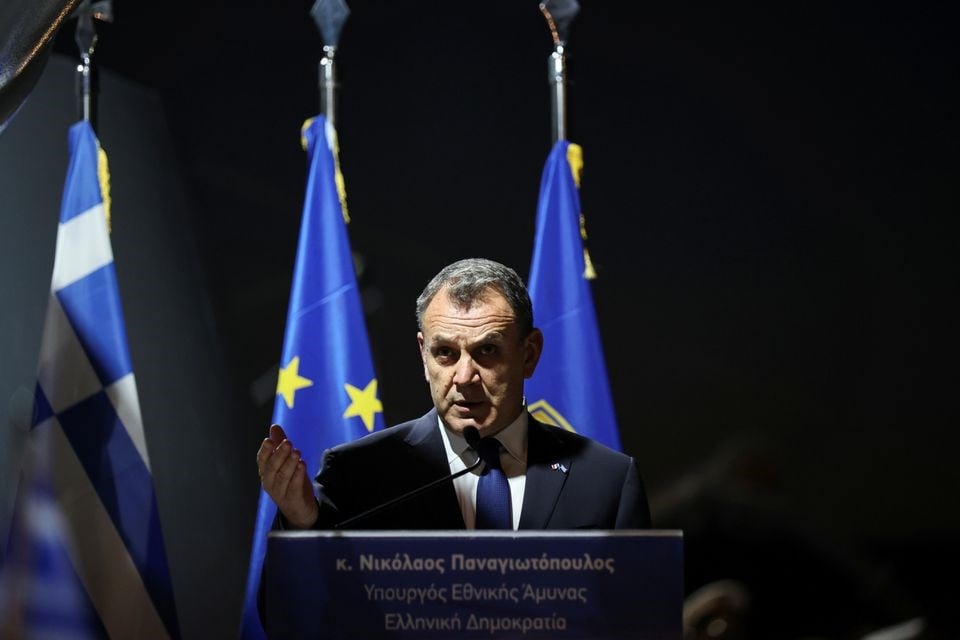Despite US plea, Greece refuses to supply S-300 to Kiev
Athens refuses to send military aid to Kiev saying that it might weaken Greece's defense and that these weapons are hard to maintain.
-

Greek Defense Minister Nikos Panagiotopoulos speaks in Athens, Greece, March 24, 2022. (Reuters)
Athens will not supply Kiev with S-300 air defense missile systems, despite the United States' urging requests, as this would result in weakening Greece's defense, Greek Defense Minister Nikolaos Panagiotopoulos said in an interview.
Panagiotopoulos added that US State Secretary Antony Blinken requested Athens to send Ukraine military equipment, including air defense supplies, during his trip to Greece earlier this week.
Washington has long asked Greece to provide military aid to Ukraine. "But we said that we could not grant this request because we could in no way provide any assistance by weakening our defenses. S-300s are where they are. They were bought and arrived in Greece for certain reasons, and as long as these reasons exist, we are not going to agree to any weakening of our defense system," Panagiotopoulos said.
Read more: Lavrov: Athens says won't transfer S-300s to Kiev, Moscow monitoring
The S-300 air defense missile systems in Greece were acquired from Cyprus.
The Greek defense minister highlighted the difficulty of the technical maintenance of these systems, which applies to Russian or Soviet-produced weapon systems.
The defense head added, "We gave 20 infantry fighting vehicles we have to Ukraine in exchange with the Germans, we received more modern and, therefore, more suitable for our needs German-made armored vehicles. There are 20 more to give. In any case, it is becoming increasingly difficult to maintain these systems."
Greece obtained a great number of Soviet and Russian-made weapons of different sorts back in the 1990s. The US has been urging Greece to replace the Russian-made weapons with US-made ones, appealing to the notion that they are both NATO members.
Russian military commander Muradov commented a few months back about the decision saying, "Such a move by Athens would be not only a senseless demonstration of hostility towards Russia but also a risky step towards its own national interests, which the Greek public is already loudly declaring."
Read next: Turkey accuses Greece of manipulating meetings in relation to NATO

 2 Min Read
2 Min Read








